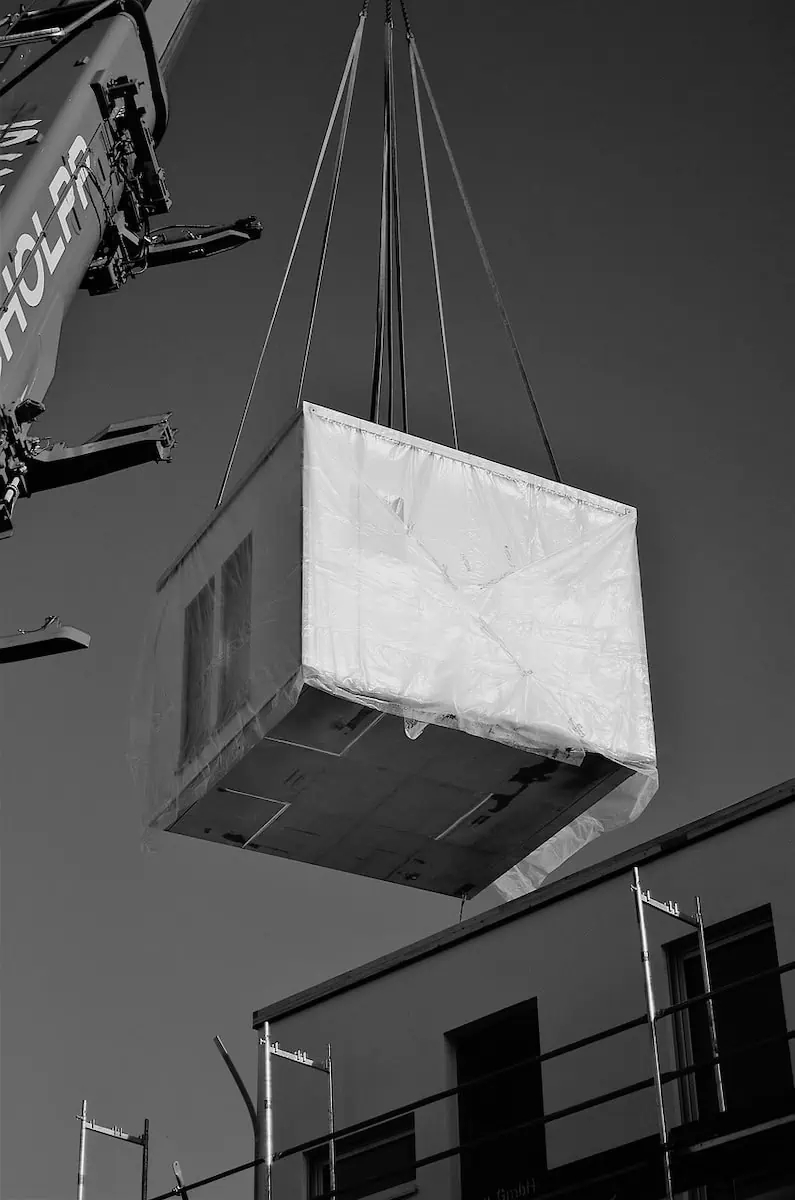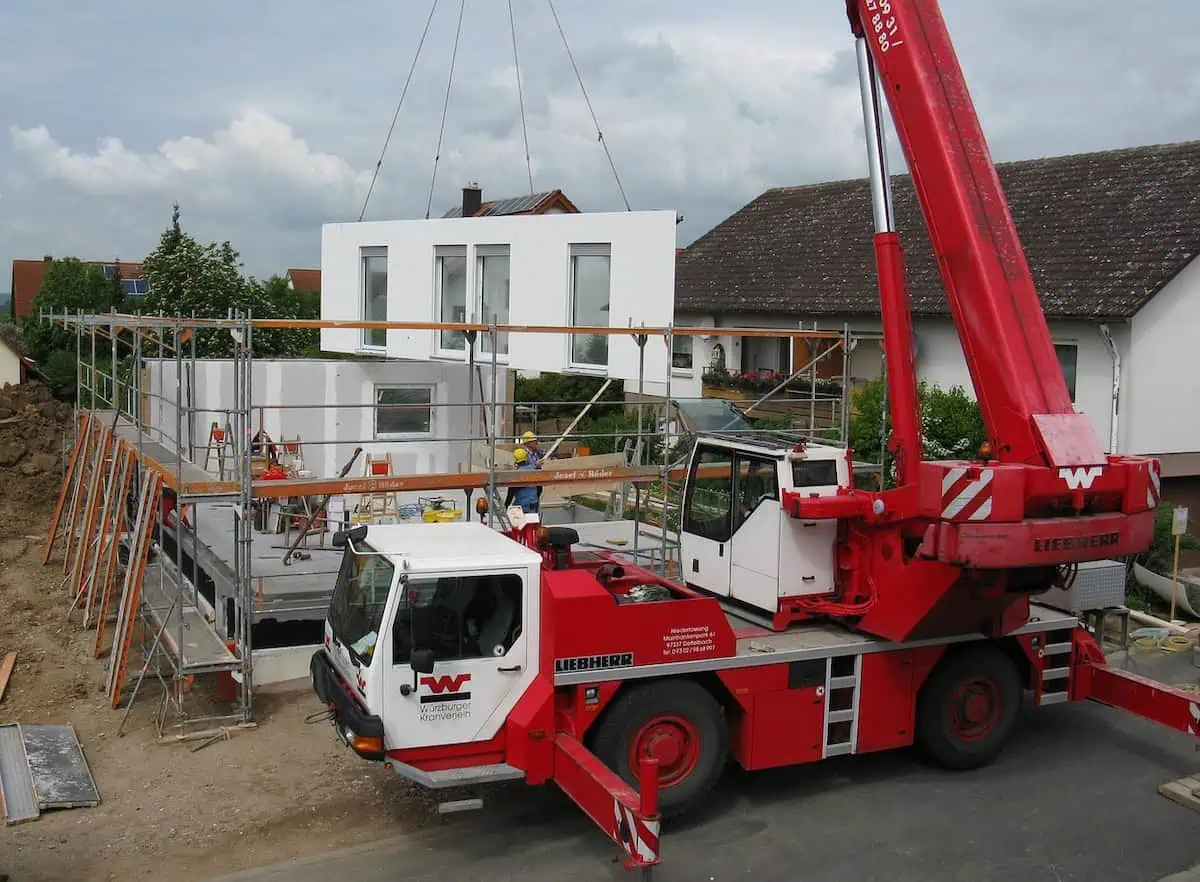Considering a new home? Have you stopped to think about the environmental impact of your choice? In today’s world, sustainable building practices are more important than ever. That’s where modular homes come in.
These innovative homes, built in sections in a factory setting, offer a surprising range of environmental benefits. Let’s explore how modular home construction can contribute to a greener future for all.
1. Defining Modular Construction
So, what exactly is a modular home? Unlike traditional site-built homes constructed entirely on-site, modular homes are built in a completely different way. For example, Beechwood’s modular construction process involves creating individual sections, or modules, in a controlled factory environment.
These modules—walls, floors, or even entire rooms—are meticulously crafted using high-quality materials and advanced techniques. Once complete, the modules are carefully transported to the building site and then expertly assembled on a pre-prepared foundation.
This approach stands in stark contrast to traditional construction methods, which involve numerous deliveries of various materials to the building site. This can lead to waste on-site, unpredictable weather delays, and overall less efficient use of resources. By contrast, modular construction offers a more streamlined and environmentally friendly process.
2. Reduced Waste in Manufacturing
One of the biggest environmental advantages of modular construction is its significant reduction in waste. Traditional construction sites can resemble a constant dance of deliveries and material scraps. Cutting lumber to size on-site can lead to inevitable offcuts, while unpredictable weather conditions can damage exposed materials. In contrast, factory settings for modular construction offer a much more controlled environment.
With modular construction, computer-aided design (CAD) software ensures precise measurements for each module. This minimizes the chance of excess material being used during the building process. Additionally, the controlled factory environment protects materials from weather damage, further reducing waste.
But the benefits go beyond just minimizing initial waste. Modular construction also excels at maximizing the use of leftover materials. Scraps of wood or metal can often be repurposed within the factory for other modules, minimizing the need to send anything unnecessary to landfills.
This focus on precision and responsible material use makes modular construction a clear winner for those seeking an eco-friendly building option.
3. Energy Efficiency in Production
Beyond reducing material waste, modular construction boasts another key environmental benefit: increased energy efficiency during production. Traditional construction sites require constant transportation of materials back and forth, and power tools used for on-site assembly can guzzle energy.
In contrast, factory settings for modular construction offer a much more streamlined and energy-conscious approach.
Here’s how it works:
- Centralized location: Factories can leverage economies of scale when it comes to energy use. Advanced machinery can be optimized for efficiency, and insulation can be strategically placed to minimize heating and cooling needs within a large workspace.
- Standardized processes: Repetitive tasks within the factory allow for optimized workflows that minimize wasted energy.
- Prefabricated components: Many building components used in modular construction, like walls and roofs, can be pre-assembled in the factory using specialized machinery. This reduces the reliance on energy-intensive tools on-site.
Controlling the environment and implementing efficient processes allow modular construction to significantly lower the overall energy consumption required to build your home. This translates to a smaller carbon footprint and a more sustainable building process.

4. Speed of Construction
The environmental benefits of modular construction extend beyond the factory floor. One often overlooked advantage is the significantly faster build times associated with this approach. Traditional construction projects can drag on for months, with constant disruptions and delays due to weather or material shortages. These extended timelines translate to a longer period where heavy machinery is operating on-site, generating noise pollution and exhaust fumes.
Modular construction flips the script on this issue. Since modules are built in a controlled environment, weather delays become a non-factor. The repetitive nature of modular construction also allows for a highly efficient assembly process on-site. This translates to a much faster completion time, often weeks or even months quicker than traditional methods.
A shorter construction timeline translates to:
- Reduced on-site energy use: Less time spent operating machinery and power tools on-site means a lower overall energy consumption for the project.
- Minimized noise and dust pollution: With a faster build process, there’s less disruption to the surrounding environment from noise and dust generation.
- Lower risk of erosion: Traditional construction sites can leave exposed soil vulnerable to erosion for extended periods. A faster build with modular construction minimizes this risk.
By completing your home in a shorter time frame, modular construction helps you reduce the environmental impact of the building process. This allows you to move into your dream home sooner, with a lighter footprint on the planet.
5. Transportation Efficiency and Minimized Site Impact
While traditional construction involves constant deliveries of various materials, modular construction takes a more streamlined approach. This translates to a significant reduction in transportation emissions—a major contributor to air pollution.
With modular construction, the prefabricated modules are typically delivered to the building site in just a few large shipments. This minimizes the number of trucks on the road, reducing fuel consumption and exhaust emissions.
Beyond the number of deliveries, modular construction also boasts a lighter touch on the actual building site. Since the modules are built off-site, the need for extensive on-site construction activities is significantly reduced.
This translates to less excavation, minimized soil disruption, and a smaller footprint for the overall project. This not only protects the surrounding environment but also creates a safer and less disruptive experience for nearby residents.
6. Long-Term Energy Efficiency
The environmental benefits of modular construction extend far beyond the initial building process. Modular homes are designed with a keen eye toward long-term energy efficiency, helping you save money and reduce your environmental impact for years to come.
Here’s how modular construction sets the stage for a sustainable future:
- Energy-efficient designs: The controlled factory environment allows for precise engineering and tight construction, minimizing air leaks and drafts. This translates to a more comfortable living space and a significant reduction in heating and cooling costs. Additionally, modular construction often utilizes advanced insulation materials and techniques, further enhancing thermal performance.
- Material selection: Many modular homebuilders prioritize the use of sustainable and energy-efficient materials. This can include recycled steel framing, FSC-certified wood (FSC is the Forest Stewardship Council; they source from responsibly managed forests), and high-performance windows that maximize natural light and minimize heat gain.
- Renewable energy integration: The modular approach often lends itself well to the incorporation of renewable energy sources. Solar panels can be easily integrated into the roof design during the factory assembly stage, while considerations for geothermal heating and cooling systems can be factored in from the outset. This forward-thinking approach allows you to harness clean energy and further reduce your reliance on traditional power sources.
Imagine enjoying the comfort and style of your dream home while also making a positive impact on the environment. That’s the enduring legacy of a well-built modular home.
Building a Sustainable Future, One Module at a Time
As you’ve seen, modular construction offers a compelling combination of innovation and environmental responsibility. From reduced waste and energy-efficient production to faster build times and long-term sustainability features, modular homes are making a significant difference.
If you’re looking for a way to lessen your environmental impact while building your dream home, modular construction is a path worth exploring. With its focus on precision, efficiency, and eco-friendly practices, modular construction is quite literally building a more sustainable future, one module at a time. So, are you ready to join the movement?
Article and permission to publish here provided by Claire Glassman. Originally written for Supply Chain Game Changer and published on April 16, 2024.
All photos provided by Claire Glassman.

